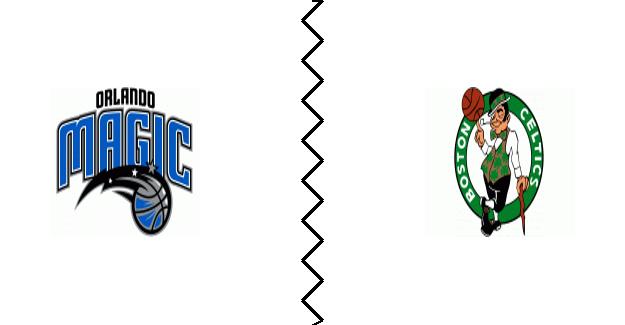2025-04-23 Orlando at Boston Matchup Preview

With Boston looking to continue their dominance at home, Orlando aims to disrupt the Celtics' offensive flow and steal a game on the road.


Offensive Overview
The Boston Celtics present a multifaceted offensive approach, prioritizing ball movement and spacing to create high-quality scoring opportunities. Throughout the regular season, the Celtics showcased their offensive strength with an assist percentage of 62.8, reflecting their commitment to team-oriented basketball, but in the playoffs, this is slightly down at 59.5%. They're an efficient shooting team that boasts a true shooting percentage of 59.1, proving their offensive firepower, but in the playoffs, this is slightly down at 57.3%. The Celtics are adept at finding the open man and converting opportunities at a high rate. Orlando's defense, on the other hand, will look to disrupt Boston's offensive rhythm. They allowed an opponent assist percentage of 59.8 during the regular season, but this is slightly down in the playoffs at 59.5%, suggesting a strong initial defensive structure. Limiting Boston's passing lanes and forcing them into isolation situations will be key for Orlando's defensive success.
Defensive Strategies
Defensively, Boston employs a scheme that emphasizes containing penetration and contesting shots. During the regular season, the Celtics held opponents to a 34.7% mark from three-point range, but that is up to 37.0% in the playoffs, indicating a solid perimeter defense and a commitment to contesting outside shots. Orlando's offensive success will depend on their ability to generate open looks from beyond the arc and capitalize on any defensive lapses by Boston. Orlando's offensive rebounding percentage in the playoffs stands at 28.3%, so they are crashing the offensive glass. Boston will have to control the defensive glass after allowing an offensive rebounding percentage of 25.7% during the regular season, though they improved on that number in the playoffs, only allowing a percentage of 24.3. If they can secure rebounds and limit second-chance opportunities, they will control the pace of the game.
Pace and Turnover Battle
The Celtics are very good at not turning the ball over with a turnover percentage of 10.8% during the regular season, but this is up to 10.9% in the playoffs. The Magic during the regular season forced a turnover percentage of 15.2%, but this has taken a dive in the playoffs to 9.1%. Whichever team can dictate the tempo and control possessions will have a significant advantage. For Orlando, the Magic have a pace of 96.1, and Boston has a pace of 95.7. This is a similar pace, so it will come down to which team can better execute in their half-court sets. Boston had an assist to turnover ratio of 2.2 during the regular season, but this is slightly down to 2.0 in the playoffs. Orlando had an assist to turnover ratio of 1.6 during the regular season, but this is down to 1.1 in the playoffs. This means the game will be about who can get more of the easy points, and which team can avoid giving up easy points.
Key Matchups
The Celtics will look to exploit mismatches and create scoring opportunities through their versatile offensive players. Boston's ability to move the ball and find the open man will test Orlando's defensive rotations. The Celtics need to take care of the ball better as Orlando will key in on that given they have a strong block percentage of 11.9%, but in the playoffs this has dropped to 11.1%. Boston will need to get some easy opportunities to score, and the best way to do so is to not turn the ball over.
Intangibles and Prediction
Home-court advantage will undoubtedly play a role in this game, as the Boston faithful provide a significant boost to their team. Boston can dictate the pace of play and capitalize on their opportunities, while Orlando needs to force turnovers and control the paint, specifically keeping Boston off the offensive glass. Orlando's playoff defense is allowing teams to shoot 43.2% from three, and they cannot allow the Celtics to get hot from behind the arc. Boston can continue their playoff run with a strong performance at home.
Score Prediction
Boston 100, Orlando 96.